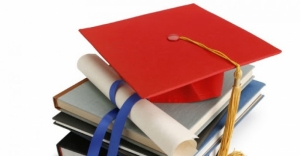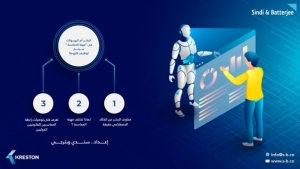عرض العناصر حسب علامة : التعلم الالي
رسالة دكتوراه : أثر استخدام تكنولوجيا المعلومات والاتصالات في تطوير منظومة التعليم المحاسبي لتلبية متطلبات الجودة والاعتماد
يتناول هذا البحث موضوع تطوير منظومة التعليم المحاسبي من خلال استخدام وسائل تکنولوجيا المعلومات والاتصالات الحديثة، وخاصة وسائل التواصل الإجتماعي المختلفة ووسائل عرض المحاضرات.
5 تحديات أخلاقية ستشتد مع زوال الوباء
لأكثر من عام، تم اختبار العالم من خلال التحديات الناتجة عن جائحة COVID-19. ردا على ذلك، أظهر المحاسبون مرونة هائلة
معلومات إضافية
-
المحتوى بالإنجليزية
5 Ethics Challenges that Will Intensify as the Pandemic Wanes
For more than a year, the world has been duly tested by the challenges resulting from the COVID-19 pandemic. In response, professional accountants have shown tremendous resilience. However, as jurisdictions around the world progress toward a more hopeful future, the ethics challenges the accountancy profession and stakeholders face are far from over.
In fact, they might intensify.
As the pandemic fades, many entities will be eager to demonstrate their potential by posting quick wins and an accelerating recovery. Others will continue to navigate the intricacies of government support schemes, and, as those taper, some entities will find themselves on the brink of insolvency. Just as the economic impacts of this crisis unfolded in an uneven and unpredictable manner around the world, so too will recovery efforts. Professional accountants must anticipate a continued period of heightened uncertainty and prioritize their ethics responsibilities all the more.
Since Q2 of 2020, members of a Working Group formed by the International Ethics Standards Board for Accountants (IESBA) and National Standard Setters (NSS) from Australia, Canada, China, South Africa, the U.K., and the U.S. have been meeting regularly to discuss the key ethics issues exacerbated by COVID-19. The Working Group’s charge is to develop implementation support to assist professional accountants in effectively applying the International Code of Ethics for Professional Accountants (including International Independence Standards) (the Code) when facing circumstances created by the COVID-19 pandemic.
Below is an examination of several ethics considerations that will be especially pressure tested during this period of recovery. Facing these conditions simultaneously demands renewed focus on the dynamics that exist in the relationship between professional accountants and entities as they face extraordinary circumstances for at least the next few years.
1. Pressures from an Uneven Economic Recovery: Accountants Must Be Agile Yet Resolutely Committed to the Code of Ethics
Every entity, sector, and jurisdiction will emerge from this global crisis differently. While at least one dose of the vaccine has been administered to approximately 60% of people in Israel, 52% in the U.K., 43% in Chile and the 45% in U.S. as of early May 2021, other countries do not anticipate vaccine availability increasing until at least the second half of the year. For professional accountants, that might mean working within employer organizations and serving client entities that are in vastly different stages of recovery. The truth of the matter is even when an economy fully reopens, there is likely to be at least 12-18 months more of rebuilding and playing catch-up that still has to occur. During this time of profoundly uneven progression, professional accountants will be under huge strain.
We all face a new reality ahead. The pandemic created myriad opportunities for unethical behaviour. The uneven recovery might breed more of these opportunities. These might arise, for example, from increased estimation uncertainty because previous estimations established during the pandemic will be based on facts or assumptions that might no longer apply. In the context of audits of financial statements, pressures from the client and from the rapidly shifting landscape during the recovery might weigh on judgments and decisions regarding the use of non-traditional audit procedures without proper regard for the fundamental principles of objectivity, and professional competence and due care.
Agility will be a critical skillset in navigating the uncertain months and even years ahead. Importantly, while remaining nimble, professional accountants must continue to adhere to the Code, including applying its conceptual framework in these atypical situations.
2. Demands for Greater Support and Efficiency: Auditors of Financial Statements Must Carefully Consider Independence and Familiarity Issues
In the coming months, auditors of financial statements must balance a multitude of unexpected variables. Client demands will likely increase and fluctuate widely. Audit firms will be asked to do things, formally and informally, to support and advise their clients. It’s imperative that auditors continue to acknowledge that the provision of a non-assurance service to an audit client, including advice or recommendations, might create independence issues and heighten ethics pressures. For example, auditors must be cognizant of the pressure to turn a blind eye, act without due care, inadvertently take on a management responsibility for an audit client, or provide inappropriate opinions on the viability of business operations and assets that have likely fluctuated tremendously. In some jurisdictions, such as the U.K., missed filing deadlines and the failure on some companies’ part to apply for extensions have led to automatically downgraded credit ratings. As a result, companies are pressured to have their audits completed quickly at any cost. The ethical responsibility to comply with the Code’s fundamental principles of integrity, objectivity, professional competence and due care, as well as professional behavior must remain top of mind.
In the wake of particularly challenging financial periods, some entities – especially those that are small and less complex – might want to avoid the additional complications and costs of engaging more advisors and feel inclined to streamline professional support by turning to their auditors. Auditors that provide such non-assurance services (NAS) to audit clients must continue to comply with the Code’s NAS and Fee-related provisions. In particular, auditors should be on the lookout for changes that might affect an audit client’s ability to make all judgments and decisions that are the proper responsibility of management. Further, it is important that the pressures of the pandemic do not undermine the auditor’s obligation to identify, evaluate and address threats to independence that might arise from the provision of such NAS.
The business environment in which the broader accountancy profession operates has gone through unprecedented changes. Such changes have implications on employing organizations, the internal operations of firms, the clients they serve, as well as the nature of certain client interactions and relationships. For professional accountants to maintain the highest standards of ethical conduct, and where applicable, be independent, they must remain alert to new information and changes in facts and circumstances. For example, think about public companies that link the finance team’s compensation to the organization’s performance. In such instances—especially at a time when these companies might be struggling financially—professional accountants (both in business and in public practice) must be keenly attuned to what motivates management, and how these motivations might bias key performance factors or indicators such as revenue forecasting, assumptions and estimates.
3. Risks Regarding Rapid Digitalization: Accountants Must Be Alert to Cyber Crimes
The rapid speed of digitalization and tech adoption has raised questions about how accountants and firms are to identify, evaluate and address threats to compliance with the fundamental principles and independence that might be created by the development, use and implementation of technology. In Australia alone, 79% of small and medium businesses say they are expanding software purchases for a more digital future, according to a Gartner study. Nearly half say digital solutions upgrades are happening as a direct result of the pandemic. Even under the best circumstances, the acceleration of digital transformation presents risks. In crisis circumstances, those risks increase exponentially.
For example, the pandemic saw cybercrimes and fraud increase globally as unusual and remote circumstances were taken advantage of and new ways to exploit a broader and deeper range of organizations and individuals were found. In the U.S., cybercrime reports nearly doubled in 2020, according to the Federal Bureau of Investigation. The U.K. saw at least a 30% increase. In parts of Latin America, cybercrimes spiked 60% in the early months of COVID when compared to the same period in 2019. This stark trend is unlikely to abate during the recovery phase, highlighting the continuing challenges to adhering to the fundamental principles of integrity, objectivity, professional competence and due care and confidentiality, especially as companies might have skipped steps or cut corners on cyber security and related measures to keep doing business in the remote environment. Professional accountants and firms should consider whether circumstances may warrant the use of specialists during this time to assist in identifying, evaluating and addressing new risks, such as cyber threats.
Moreover, as jurisdictions see some return to pre-pandemic norms, many entities will likely choose not to return to fully in-person workplaces, and many professionals, including accountants will elect to continue working remotely where possible to preserve the flexibility afforded to them during COVID. Employing organizations must become ever more diligent and innovative in transitioning back to in-person work. It is critical to consider architecting hybrid or virtual protocols that consider best practices, including for example, data hosting and management functions while faithfully abiding by ethical obligations. The risks of complacency are far too great. Professional accountants must apply a deeper understanding of data analytics and technology to their work while being fully attuned to the ethical risks in order to uphold the profession’s good reputation.
As professional accountants continue to evolve ways of working in a world that is more hybridized, with companies operating from both offices and employees’ homes, several personnel factors should be considered. First are concerns about the skills required to operate effectively and ethically in a more digital environment. The profession will need to further invest in professional competencies regarding technology and information systems. Related to that are concerns around capabilities and learning for new talent, who might be at a disadvantage stemming from a lack of in-person interaction with more senior colleagues.
4. Burnout and Mental Health of Teams and Talent: Accountants Must Strive for Resiliency and Solutions
There is growing concern around mental wellness and the state of mind that is required to think critically, rather than just accept information at face value. More than a year into the pandemic, individuals are under immense stress and many are suffering emotionally. In 2020, various studies showed that many adults in jobs that did not normally require them to work outside of their homes reported symptoms of depression and anxiety.
The accountancy profession must be cognizant of the mindfulness required to act competently, with integrity and due care, and to be objective in exercising judgments without being compromised by bias. As such, professional accountants must be conscious of issues colleagues could be facing—and not talking about—that might impact judgments and ethical decision making.
The need for strong organizational culture, with established and open communication channels, as well as protocols for how to address circumstances where staff might not be able to bring their full mental acuity to a particular task or job, is essential as complexities and stressors proliferate.
5. Predisposition to Focus on the Past: Accountants Must Recognize the Shift and Focus on the Future
One of the biggest challenges professional accountants face amidst the pandemic recovery will be continuing to seek out a better understanding of the issues that still lie ahead and what the ethics consequences of them might be. For example, the pace of digital transformation and use of technology such as machine learning automation in products and services has been unprecedented. In addition to the challenges related to cyber security and fraud mentioned above, it is imperative the profession stay on top of responsible automation.
As trusted advisors, it is the duty of professional accountants to be competent in these advancements where they are involved in their development and implementation. This involves attaining and maintaining the knowledge and skill required for the job. In the context of today’s world, this means learning how to properly understand threats to the fundamental principles of ethics from the technology. As new or unresolved issues from the pandemic emerge, it will result in higher degrees of uncertainty which will make it increasingly difficult to keep a focus on evolving the profession for the future, but this will be a necessity. Together, professional accountants must acknowledge how the pandemic changed companies and social norms and strive to be a step ahead.
Professional accountants, like others in the workforce, are operating within an unusual context right now. Around the world, corporate priorities and public expectations are changing rapidly. These changes will have implications on the accountant’s role. For example, the rise in stakeholder capitalism and subsequent call for Environmental, Social and Governance (ESG) reporting are leading investors to not only seek more reliable and comparable information in the area of ESG reporting, but also obtain assurance on such information. Professional accountants must answer that call.
While we begin to realize life beyond COVID-19, we must all be increasingly thorough in assessing the impact these changes are having on views and perceptions about ethics requirements, especially as it relates to the relationship between the accountant and the entity. Just as the pandemic increased risks of unethical behaviour, efforts to rebuild will equally increase opportunities to evolve for the better.
التعلم الآلي في المحاسبة وما يعنيه للأعمال
إذا سبق لك إرسال رسالة إلى برنامج دردشة عبر الإنترنت أو طرحت سؤالاً على Alexa، فهذا يعني أنك استخدمت التعلم الآلي. ولكن هل تعلم كيف يمكن للتعلم الآلي في المحاسبة أن يجعل عمليات الشركات الناشئة أو الشركات الصغيرة أكثر دقة وكفاءة؟
معلومات إضافية
-
المحتوى بالإنجليزية
Machine learning in accounting and what it means for business
By Snehal Shinde
July 28, 2021, 10:49 a.m. EDT
3 Min Read
Facebook
Twitter
LinkedIn
Email
Show more sharing options
If you’ve ever messaged an online chatbot or asked Alexa a question, you’ve used machine learning. But do you know how machine learning in accounting can make a startup or small business’s processes more accurate and efficient?
Machine learning is the application of computer algorithms to identify data patterns and use them to make more accurate decisions in similar scenarios. ML is generally used in conjunction with artificial intelligence to build automation systems and complete tasks in a way that mimics human actions.
In this article, we’ll look at how machine learning is changing the landscape of business finances, including some machine learning use cases in accounting.
Using Too Many Systems? Accounting Practice Management all in One Place
Canopy is a full-suite practice management software for accounting firms offering client management, document management, workflow, and time and billing...
SPONSOR CONTENT FROM CANOPY
The impact of machine learning in accounting for businesses
Due to the large amount of mundane work and repetitive data patterns, there is a huge opportunity for artificial intelligence and machine learning in finance and accounting to replicate human activities at scale. By using ML-powered software, your finance team can apply these technologies to a range of processes, including:
Recording data in the correct formats;
Categorizing transactions;
Reconciling accounts against bank statements;
Identifying data in scanned receipts or invoices;
Tracking changes in your expenses; and,
Streamlining audit processes or procedures.
Employing ML leads to the following changes in accounting for startups and small businesses:
Machine learning allows accounting teams to focus on complex tasks. Growing businesses usually need to process hundreds of transactions, and basic tasks, such as recording and reconciling all these transactions, can take hours of your accountant’s time each week. However, if you use ML, this doesn’t have to be the case.
For example, manually categorizing each transaction as the right type of revenue or expense could take your business’s accountant or bookkeeper up to 30 minutes every day. An ML-powered platform can automatically categorize the transactions in your accounting software in a fraction of the time, freeing up your finance team to work on tasks that require more nuanced decision-making.
Machine learning makes accounting proactive rather than reactive. When you work with a traditional finance firm that manually completes your accounting tasks on a monthly basis, the time it takes to perform all the necessary tasks means you’ll likely only see financial data 15 days (or more) after the month ends. For example, if your startup or small business’ expenses were 30% higher in February than in January, it would be mid-March before you see this discrepancy. At that point, it may be too late to reduce many expenses in the current month, and you could already be heading for cash flow problems.
In contrast, when you use machine learning to automate accounting tasks, you’ll be able to access reports and insights almost instantly. An ML-powered finance platform will close your books every day, giving you the real-time data you need to identify and address any concerning trends before they become serious issues.
Machine learning results in more cost-effective financial services. Because using machine learning in accounting reduces the human work involved with managing finances, these time savings can then translate to financial savings. Most finance services charge an hourly fee, so the less time it takes them to handle your finances, the lower your monthly bill. In fact, you can benefit from ML-powered services for a startup-friendly flat fee that is only 30 to 50% of traditional finance firm costs.
The rise of ML is also likely to reduce the range of finance tools you need and, therefore, the number of subscriptions you pay. Currently, most finance teams use many different tools to complete individual accounting tasks, such as paying bills and handling payroll. These tools often don’t use ML or use it in a limited way for a specific feature. The future of finance automation is in a small number of platforms that will use AI and ML to handle all your accounting processes, so you’ll only need a single finance tool subscription.
Modern finance firms that use a combination of high-tech solutions and seasoned finance experts can accurately and efficiently handle all your business’ accounting, bookkeeping, and CFO needs. These AI and ML offerings give you continuous accounting and immediate access to reports and key metrics, including net burn, cash balance, and operating expenses — resulting in access to a clear, real-time picture of your business’s financial health.
فتح الصندوق الأسود للذكاء الاصطناعي
معلومات إضافية
-
المحتوى بالإنجليزية
AI, applied: Opening the black box
By Ranica Arrowsmith
There’s a phrase for the uneasiness many of us feel when confronted with humanlike machines — the Uncanny Valley. Coined in the 1970s by Tokyo robotics professor Masahiro Mori, the phrase describes how as machines appear more humanlike, they become more appealing to humans — but only up to a point. After that, as they appear more humanlike but not quite, they inspire revulsion in the observer.
In the accounting profession, there is a similar uneasiness when dealing with the idea of AI, though it has nothing to with how the software looks. The technology has the potential for high-level automation of processes, ultimately saving a lot of time for the accountant, but with its ability to perform tasks that are traditionally the purview of human beings, does this mean a diminished role for the accountant, or even the loss of jobs?
The good news is, the experts don’t think so.
Justin Adams, whose company Anduin has just launched an AI-enabled accounts receivable platform, insists there is an “art” to billing that must remain in the AR process for it to be meaningful and profitable — the deep knowledge of a client over time, for example, can affect a billing relationship. And Samantha Bowling of Garbelman Winslow CPAs isn’t interested in simply speeding up the audit with AI — she wants to provide an audit of such high quality that it’s unquestionable. These types of service goals can only be achieved by marrying AI with the human professional, with all the professional’s experience, skepticism and emotional intelligence.
Artificial intelligence can have an air of mystery about it, to say nothing of a hint of the unnatural, with something we value as inherently human — intelligence — being created and inserted into something inanimate — a machine.
It makes sense that we feel this way. The programming precursor to what we today call artificial intelligence was neural networks, code that was inspired by and modeled on actual human neural networks in the brain. Today, artificially intelligent programs have the ability to observe patterns and use those to “learn” behaviors and responses, making the technology smarter and more usable over time.
It’s worth bearing in mind the various ways in which AI is already here, working in the background of the accounting and enterprise platforms you know well, automating processes and making software more efficient. All the user sees are the benefits. But the market is now seeing true AI platforms that apply machine learning to entire processes end to end, such as AR/AP. And the common theme among all use cases for such AI-rich platforms is time — the time it takes to adopt the software and to validate it, to train it enough for a firm to realize its benefits. The machine has to learn. This takes an investment both of money and patience, but for the willing, it’s worth it.
Today, artificial intelligence is transforming processes across the accounting profession, for those are ready to invest in and adopt it. It’s not just being practically applied in audit, where AI is being used for data analysis and anomaly detection — we will look at examples of AI transforming AR/AP, as well as explore the implications of AI in sales tax automation.
Accounts: Receivable
Despite … everything about this year, venture capital funding continued on an upward trend in 2020, with the third fiscal quarter bringing in the second highest amount of VC funding per quarter on record. Artificial intelligence is high on the list of hot tech, which makes it no surprise that Anduin was able to obtain seed funding and launch its first AI-powered product suite all during the COVID-19 pandemic.
Anduin co-founders Justin Adams and Pat Morrell have built an AI-driven accounts receivable platform, Intelligence-Based Billing, for accounting firms. The platform launched in December, so it remains to be seen how successful adoption will be, but the pair of entrepreneurs have succeeded before in the AI space. Prior to founding Anduin, Adams and Morrell started, grew and sold a company that made an AI-driven product for the health care space, all within two years. That whirlwind experience propelled them into their current venture, and their success made them attractive prospects for investors.
“We had zero health care background when we started Digitize.AI,” Morrell said. “But we went to CFOs of health care companies and asked them where their biggest pain point was. When they said ‘prior authorizations,’ I had to look it up on Wikipedia — but I knew that a manual process is a manual process, and can be automated.”
Adams and Morrell weren’t quite as clueless entering the accounting space. Adams had spent years working at Big Four firm PwC, first in a consultative capacity and then internally managing technology projects. When they asked accountants what they would change if they could wave a magic wand, accounts receivable was a common answer. The process, managed manually, is scattered and unwieldy, and even streamlined client portals don’t optimize the process for each individual client and their payment habits.
There’s an art to billing, Adams said, and the platform tries to preserve that for the accountant. “Think of it from a client’s perspective,” he said. “There’s tons of friction. It can be confusing. You could have received a service three months earlier, and when you get the invoice, you’re trying to remember what you’re paying for again.”
Intelligence-Based Billing is made up of four modules (which can be bought separately), handling invoicing, collection, payments and internal analytics. The platform automates the invoicing process so bills are sent in a timely manner, but it also learns a client’s payment habits over time. How many emails or messages does it take before an invoice is opened and viewed? How many contacts does it take before a client pays the bill? Each client is different, and therein lies the art. If a client typically pays an invoice after two emails and a phone call, Intelligence-Based Billing will “remember” that over time, optimizing the process for each firm-client relationship.
More “art” that the AI tries to replicate: The analytics feature can be used in part to automate, so to speak, that gut feeling accountants also have to pay attention to when it comes to value-based billing. For instance, Morrell pointed out, a firm may have worked a certain number of hours on a project, but with their sense of the market over the years, they know that a client might expect a certain discount. Each client perceives different aspects of a service as more valuable, and also might need different billing structures to remain a client in the long term. Intelligence-Based Billing pulls and analyzes data from across firm systems to inform this type of decision-making.
“The fundamental pain is the anxiety that firms are leaving money on the table; and that firms don’t have real visibility into their cash flows,” Morrell said. “On the partner level, it’s all about liberating them to focus on complex, creative, value-generating service delivery.”
Intelligence-Based Billing is new on the market, and is signing up “trailblazer firms” now as its first customers. Time will tell how successful it will be, but no matter what, Anduin is part of a small group of innovators bringing fully formed, AI-enabled automation to firms of all sizes, for everyday firm functions, and will help set the stage for what’s to come.
Accounts: Payable
Youngseung Kuk manages business outsourcing services for Top 100 Firm Armanino in Boise, Idaho. This year, Kuk spearheaded the implementation of Vic.ai, a platform that automates the accounts payable process using AI. Using AI to tackle AP for clients was “low-hanging fruit,” Kuk said, as all companies, no matter what type, have bills to pay.
Armanino uses Bill.com firmwide for all AP, so the firm worked with Vic.ai to integrate the software to make the end-to-end AP process more streamlined.
Kuk and his team are validating Vic.ai as they use it, adding clients slowly, one at a time, to make sure they give the program enough time to learn its clients and become highly efficient at its predictions. This is a key part of understanding AI — it takes time.
Software that runs on AI doesn’t operate like the software we’ve become accustomed to. It doesn’t perform an exact set of functions as programmed, and only as programmed. Artificial intelligence learns as it goes, which means that by the end of a certain period of time, the software will operate very differently for each client, each firm, each project.
Kuk estimates it will take Vic.ai three years to predict client behavior and needs at a close-to-perfect rate. The wait is worth it for the sheer amount of time it can give back to an accountant once the AP process for a client is basically fully automated.
Armanino has one client, a law firm, that has highly repetitive bills that don’t have too many complicated dimensions (i.e., company name, address, and so on, are usually in the same spot on the invoices). Within a few months of use, Vic.ai can now predict any given AP workflow for that client with about 80 percent accuracy. If this is true for this client, Kuk said, that’s enough to know it’s possible for the others. Currently, Armanino has 46 clients on Vic.ai, and plans to keep validating the software so it can add more in time.
“The time spent validating is worth it, because by the end, as a firm, we’re going to be so much more scalable,” Kuk said. “Once you free up some capacity, even just from an AP standpoint we can do a number of different things for our clients that add more value, like confirming all vendors have W-9s, for example, or reaching out to vendors proactively if they haven’t accepted an ACH payment. These are just some basic examples, but I think we’re at the tip of the iceberg and nowhere near the full potential of AI.”
“Two years ago, we made an investment in artificial intelligence in a big way. It became part of firmwide strategy,” explained Tom Mescall, partner-in-charge of consulting at the firm. “Most CEOs, CFOs and business operators know the headline of AI, but they don’t know how to apply it in a business setting. We’ve done a lot of work around demystifying AI and bringing real-world examples to light for clients.”
A relevant audit
Firms have been using AI products for anomaly detection and analytics in audit for a few years now. Companies like MindBridge AI came on the scene and started to show the profession the real-world implications of being able to read every piece of data in minutes, as opposed to just sampling data. Samantha Bowling, a partner at Garbelman Winslow CPAs, saw the opportunity in MindBridge AI three years ago, and brought the technology to her firm.
In 2017, while Bowling served on the Governing Council for the American Institute of CPAs, she listened to president and CEO Barry Melancon describe how Big Four firm KPMG was investing millions of dollars into AI-driven audit technology.
“He was talking about how they were going to take over the world,” Bowling recalled. “As a small-firm audit partner, I was concerned, because if the big firms are doing something, sometimes it doesn’t become available to us for a while, or ever. I was actually concerned about eventually having to find a new revenue source.”
She called her existing audit software provider and asked explicitly if they had plans to embed AI into their platform. They didn’t. So Bowling did some online research and found MindBridge AI.
Bowling says that Garbelman Winslow is still in the adoption phase of MindBridge. As is true with the other technologies featured here, there is no substitute for time to allow an artificial intelligence platform to live up to its true potential. She started by engaging MindBridge for just one audit, and then grew usage from there. It helped when MindBridge integrated with QuickBooks, which made data transfers easier.
The biggest benefit of applying artificial intelligence to audit, for Bowling, is the risk analysis.
“Now that there is a direct link between QuickBooks Online and MindBridge, it automatically connects and does the risk analysis,” Bowling said. “I used to think MindBridge was an audit stamping tool that looked at transactions and identified anomalies, directing our attention and telling us where to look. But I realized it’s actually a great risk assessment tool in the very beginning of an audit.”
Bowling explained that while audits are based in risk assessment, a lot of the time, auditors have no idea where the risk is. “We only have our professional skepticism — there’s no one to tell us the risk is in revenue or payroll,” she said. “Now we have something that tells us where it is at the outset. Audit assertions are built into it.”
But there is friction in adoption. Not every client is easy to work with in MindBridge. There is still a lot of manual work to be done to transfer data that is not in the cloud, for instance, to MindBridge AI’s platform.
“Everyone just wants it to be an easy thing — to upload the general ledger and get going — but I think they’d be remiss not to do this with at least one client, or start with their cloud-based clients first before going to challenging clients,” Bowling said. “People are looking for faster, better ways, but I went into this not to do a faster audit but a relevant audit.”
Bowling received CPA.com’s Innovative Practitioner Award in 2018 for her work bringing AI to Garbelman Winslow CPAs. She won in part for the fact that it is small business and nonprofit clients to which she is bringing AI-enabled services, which also has the side benefit of Bowling being able to pass the cost of using MindBridge to her clients by folding it into the billing package. Nonprofit clients don’t mind paying top dollar for service that guarantees an accurate risk assessment.
“Nonprofit clients don’t care about us passing the fee onto them to minimize risk as much as we do, because nonprofit board members are just worried about someone doing something wrong with the money and it being in the newspaper,” Bowling said. “So they’re happy to have a very good audit done, and pay for it.”
Every transaction in the world
When thinking about the application for artificial intelligence in tax, often we think about tax preparation, since there is a lot of room to automate it. In fact, Samantha Bowling said that if she could apply AI to any other service area at her firm, it would be tax: “The current process, with a mix of paper documents and e-returns, is asinine,” she said. “I can’t wait till the whole process is 100 percent automated.”
AI-related innovation in tax prep is moving slowly, although the Internal Revenue Service has started to use the technology in different capacities to detect tax evasion and other types of noncompliance. But of course, there are other areas of tax that are ripe for disruption with AI, and sales tax automation is one.
One of the companies working in this area, Avalara, has made investments in AI in recent years, one of which was acquiring Indix in 2019. Indix was based on an idea that founder Sanjay Parthasarathy had for creating a comprehensive index of retail product information online using artificial intelligence to aggregate the data. (The aggregator was built in layers, with a Google web crawler grabbing information from all over the internet, and then various smart algorithms working together to curate and organize that data.)
Brands and retailers could buy access to this database of information on mostly retail, but also some business-to-business, products, to enrich their catalogs, benchmark against competitors, and so on. Basically, Indix was built as a neutral aggregator of e-commerce inventory.
And now, Avalara owns that AI-built index of more than 4 billion products. This means that Avalara can fold categorization data for much of the world’s online inventory of products in with its tax content database, which includes international product codes and classifications; taxability rules; exemption conditions; tax holidays; jurisdictions; boundaries; tax rates; thresholds and registration, compliance, and return preparation and filing requirements.
If this list sounds daunting, that’s kind of the point: Avalara’s mission is to “to be a part of every transaction in the world.” Without AI enabling at least some of this technology, this would be an impossible goal.
“When you buy a tax compliance product or suite, you want to be able to start using it tomorrow,” said Parthasarathy, who now serves as chief product officer for Avalara. “However, you know that before you can use an automated system, you have to make sure the tax nexus is right, the catalog is mapped to the tax code, a set of things that take time and research. If you want to start selling internationally, and you therefore need to start using harmonized tax codes — if it’s going to take nine months to do it, that’s lost value. We can get you going right away.”
Before Parthasarathy founded Indix, he spent almost two decades at Microsoft. He ended his career there in 2009 as corporate vice president of the Startup Business Accelerator program, a program he created; and he was director of Bill Gates’ 1997 trip to India, which led to a significant investment in that country by the software giant.
When talking about historical AI, Parthasarathy will sometimes use the term neural networks, which are indeed the statistical model programs ancestor to what we call AI today. His knowledge of AI is deep and historical, from having spent so many years helping build one of the most innovative companies in recent history. From his vantage point, he sees both the immense possibilities of AI, as well as the risks.
“There are risks in tax — compliance has potential penalties if done incorrectly,” he commented. “You’re doing it on behalf of somebody, so you want to make sure it is accurate and appropriate. You probably want actual people to keep an eye on it, rather than let AI run everything, even if one day it can. There is an ethical risk — when you have all this data, what is the responsibility of the government and companies to treat it as private data?”
اثبت حياتك المهنية في المستقبل بمهارات تحليل البيانات
معلومات إضافية
-
المحتوى بالإنجليزية
Future-proof your career with data analytics skills
By Jack Castonguay
It’s no surprise that technology and big data have become ubiquitous in the day-to-day operations of most businesses, regardless of size or industry. Data scientists, data analysts, and non-IT professionals with data analytics knowledge have become critical in their organizations’ quest to transform raw data into workable and actionable formats that can be used to identify trends, draw meaningful conclusions, and model future outcomes.
As the proliferation of data analytics has expanded, public accountants have found themselves in front of a unique opportunity that allows them to set themselves apart from their colleagues and future-proof their careers by developing their expertise in data analytics — an expertise that will ultimately save their clients time and money.
What is data analytics?
Simply put, data analytics is the process of collecting, inspecting, organizing, and transforming data to identify useful information that informs decision-making. It’s more than a tool or input — it’s a process that, when utilized correctly, provides a 360-degree view of the problem being solved, allowing decision-makers to make the best decision with the best information available.
Specifically, accountants use data analytics to help businesses uncover valuable insights within their financial statements, reduce costs, identify process improvements that increase their efficiency, and better manage risks.
Prior to the growth in data analytics, enabling a business or clients to reach their goals has been a manual and time-consuming process based predominantly on institutional knowledge and relationships. By understanding and mastering data analytics, accountants can future-proofing their career, expediting the learning curve, regardless of the career path they choose.
Professionals in public accounting can use these analytical skills to make sense of the massive quantities of financial information available to evaluate business performance, identify and manage risk, and analyze customer behavior to anticipate market trends more efficiently and accurately than ever before.
These skills are not going away anytime soon - and ultimately, the most efficient firm or advisor will win the business. Enhancing their skills in data analytics will only increase an accountant’s chance of success, and ensure their career thrives into the future.
As this knowledge and awareness of its benefits proliferate, firms and companies will look to hire those with this in-demand skill set — complementing and enhancing the traditional accounting education and experience. Public accountants can move to the top of the resume stack with this skill set, while genuinely putting themselves in a position to better serve their clients and complete their job.
Without this knowledge, professionals will quickly see their business and promotional path suffering — as clients seek the most efficient route and opt for their competitors who are able to streamline manual tasks and identify new relations, all while saving them money.
A PwC report, “Data Driven: What Students Need to Succeed in a Rapidly Changing Business World,” helps to encapsulate the important data analytics-related skills that accounting professionals, such as public accountants, should have. They include:
The ability to consider new sources of data and research and identify anomalies and risk factors in the data.
The ability to use exploratory multivariate statistics, inferential statistics, visualization tools, optimization methods, machine learning, and predictive analysis tools.
The ability to understand relational and nonrelational databases and combine multiple datasets from each.
The ability to use simple vendor risk dashboards and filters to minimize inefficiencies and human error.
The ability to perform data and process mapping from a regulatory and risk-assurance view.
The ability to identify and frame key management decisions and their related metrics to make business solutions more effective and efficient.
Building a skillset
While the reason accountants need skills in data analytics might be clear by now, the how likely isn’t. Juggling important professional development while working can be tough — but it’s absolutely possible and essential to continue advancing in your career.
For me, gaining these skills, I practiced the following:
Take breaks and inform your friends and family. When students study for the CPA Exam, I always encourage them to tell their loved ones what they’re doing, because juggling studying with a job and other day-to-day responsibilities can be exhausting, and having support is hugely important. This tip is just as relevant when upskilling. Remembering to take breaks is necessary - data analytics skills are a fantastic asset, but only if you’re not too burned out to use them.
Use a data analytics course. Much like any other skill or subject, if you study piecemeal or without structure, it will be difficult to retain and organize the information. Using a course, ideally one for accounting professionals, is crucial to ensuring that the knowledge you gain is relevant and that you understand and can apply it correctly.
Know how to showcase these skills after achieving them. While obtaining these skills can be fairly simple when using one of the many online resources available, it’s important that you know how to showcase them and promote yourself once you have upskilled. Finding a data analytics course that offers a certificate upon completion and LinkedIn badges can be a great way to highlight your accomplishments and increase your chance of promotion or transitioning to your next role.
As data analytics and its importance to entities of all sizes continue to grow, it becomes a higher priority for hiring managers and company owners when looking to hire or promote. As the accounting profession continues to evolve to include workers with atypical backgrounds, it is clear that those professionals who are dedicated to upskilling and fine-tuning their professional skill set will succeed in the long-term.








